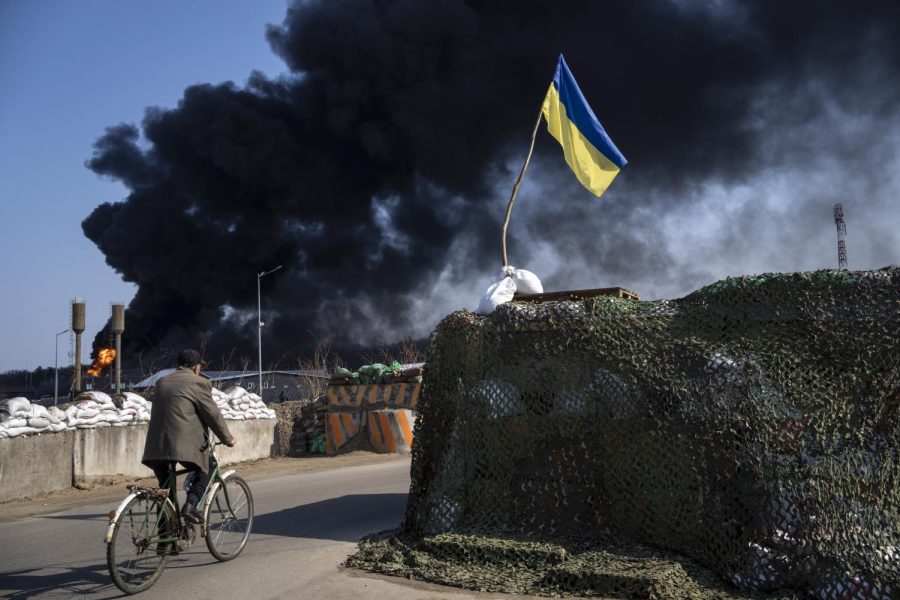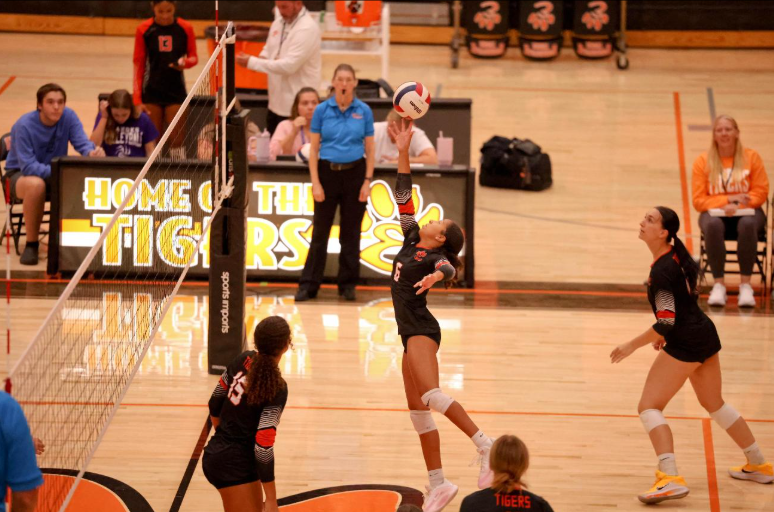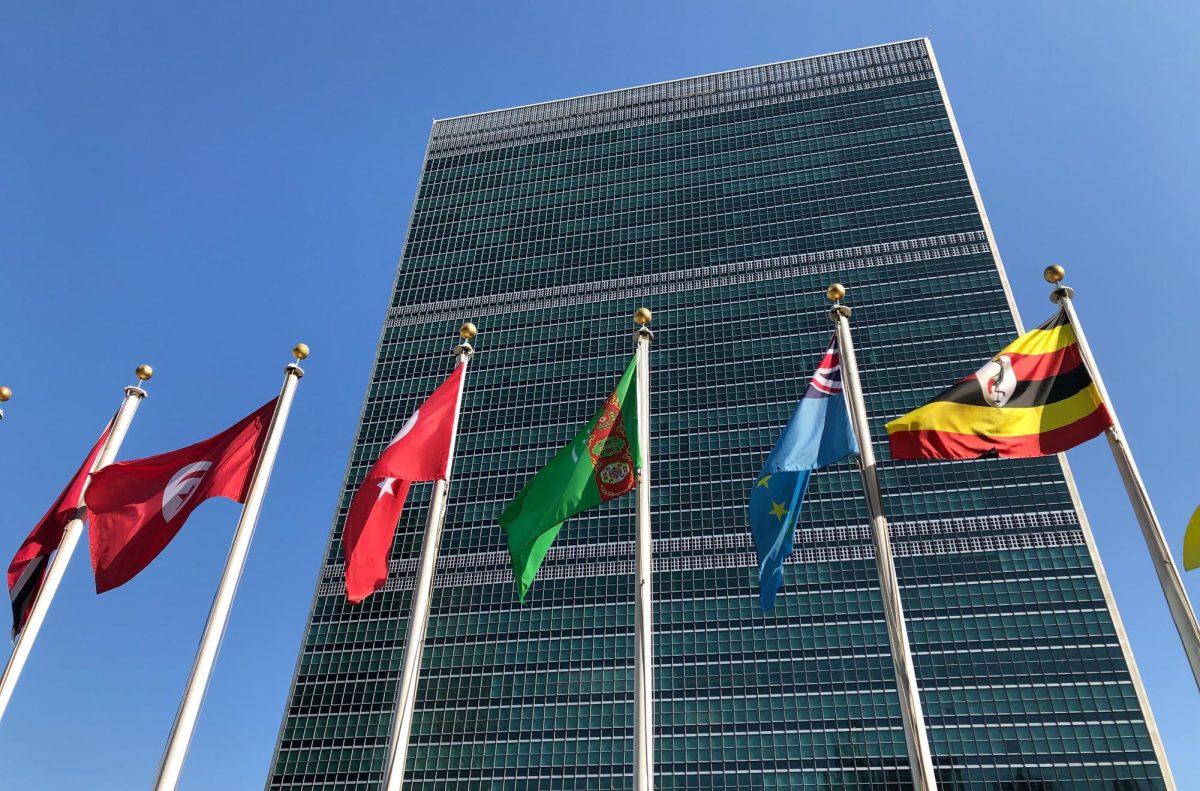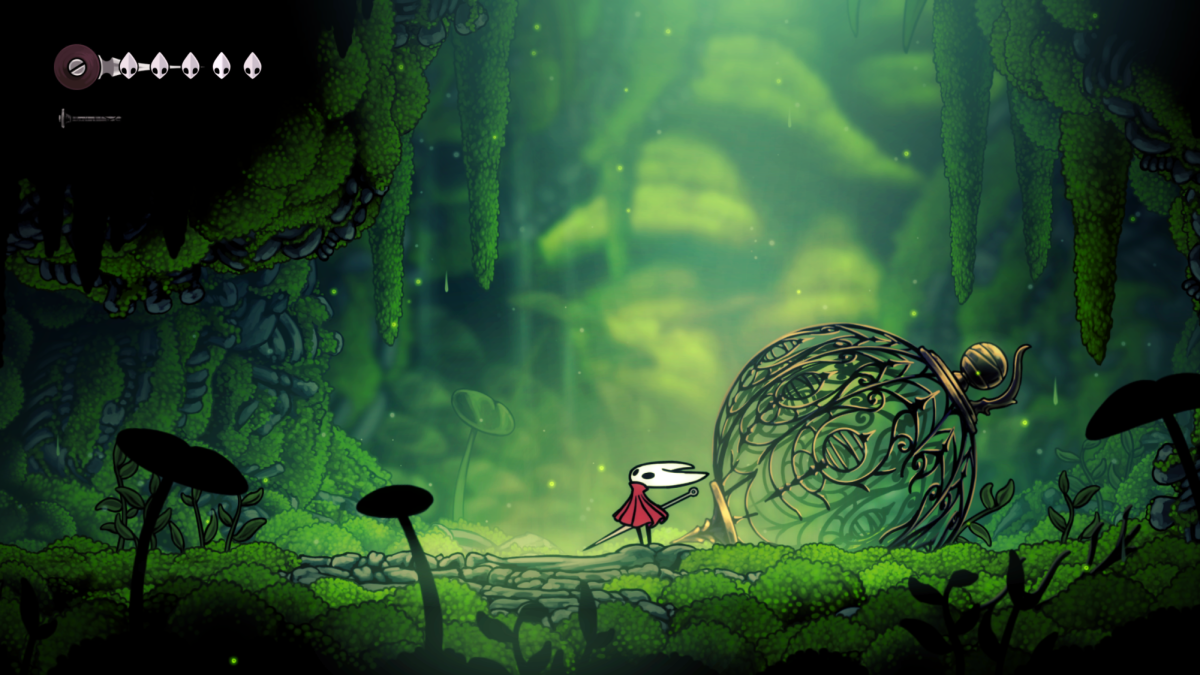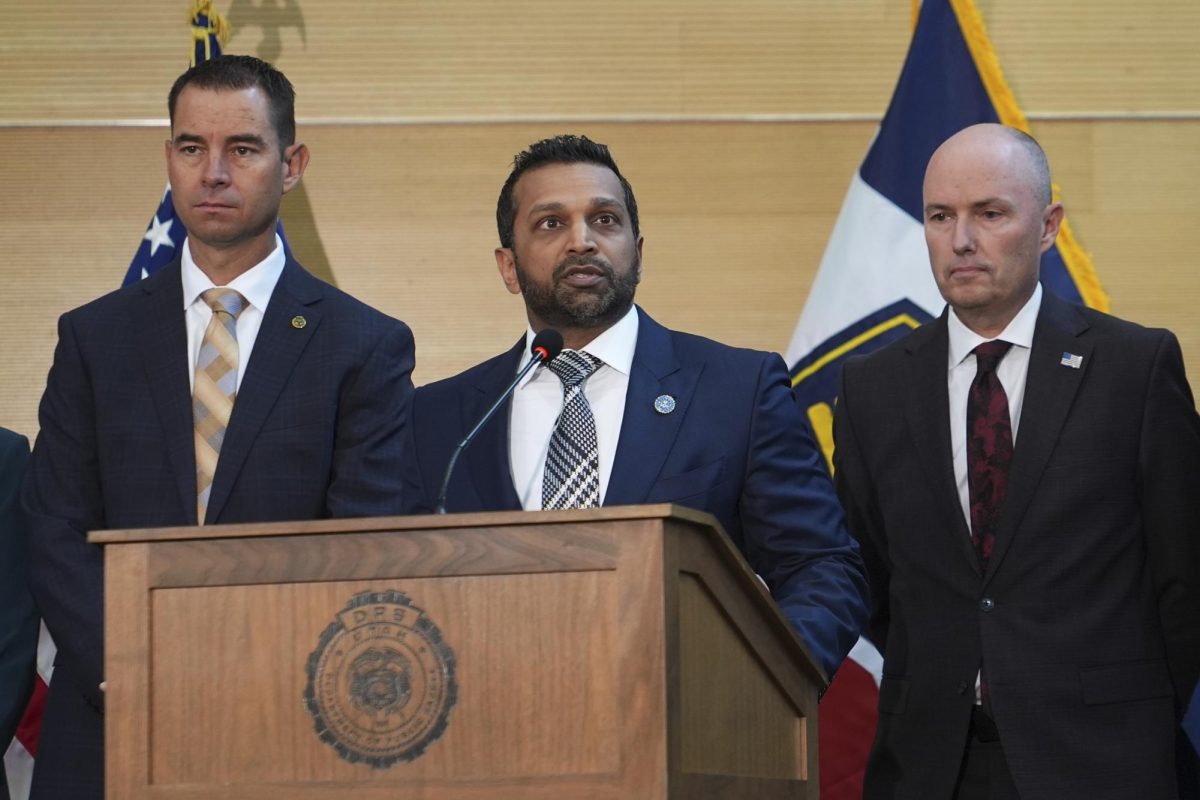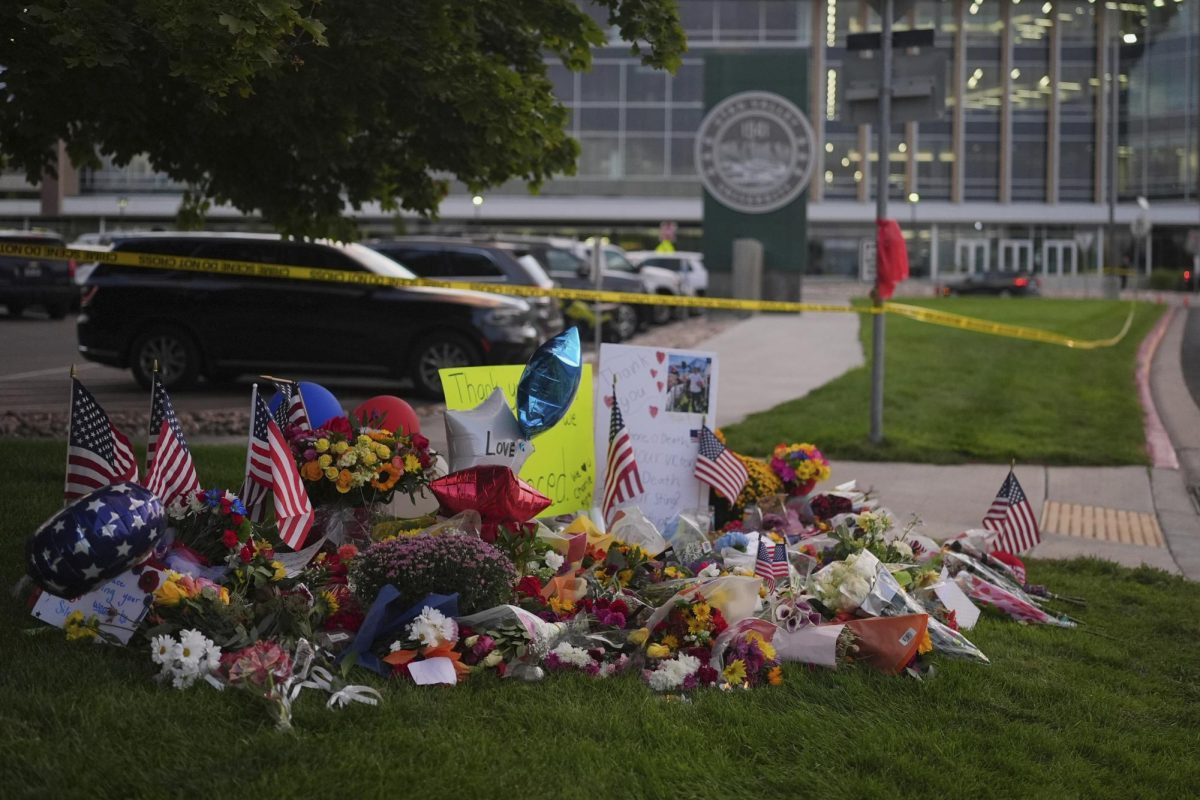Ukraine: Will We Learn from History?
A man rides a bicycle as black smoke rises from a fuel storage of the Ukrainian army following a Russian attack, on the outskirts of Kyiv, Ukraine, Friday, March 25, 2022.
March 25, 2022
The war in Ukraine is tragic. Ukrainians are losing their homes and dying.
The oppression in Russia is horrible. Citizens are being detained and manipulated.
The stress around the world is awful. Political and economic pressure are bringing hardship.
But all of that, from the smallest monetary inconvenience to the horrifying deaths in Ukraine, is preferable to one outcome of our current trajectory: War.
As of now, Ukraine and Russia are in steady conflict. Russia is besieging Kharkiv, demanding Mariupol and growing closer to Kyiv every day.
Ukraine has refused all opportunities to surrender and their army, conscripted men and boys, continues to fight on.
In support of their bravery, America and many other nations have raised tariffs on Russian goods including gasoline. With this, gas prices have risen to a record $4.17 average with some places as high as $7.50 according to AAA.
At the same time, with trade routes in shambles, prices on many goods from groceries to electronics have risen, leaving American families to absorb all losses.
Over the iron curtain, tensions aren’t much lower. Russian citizens and soldiers, conscripted just the same but forced to attack, resist the war effort, and are quickly dealt with. Many protestors, from children to the elderly, have been detained by the Russian police whilst Putin assuages the people’s fears.
Things don’t look good, and as the news feed continues to spiral, the wreckage at the end of our current crash course seems inevitable:
As in the past when the western world was threatened, America will eventually be drawn into combat.
As in the past when America enters the fray, a long era of political instability will ensue.
And, as in the past when all of that comes about, it won’t just be distant people from a country most Americans can’t find on a map dying.
America has forgotten what it’s like to be in war, and many war-hawks need a wake-up call.
America and Russia only directly fought briefly during World War One, but there’s been plenty of indirect warfare. Vietnam, Desert Storm, or the entirety of the Cold War, each was tragic but none will compare to an honest-to-god war.
In Vietnam, 282,000 Americans and over a million people died in total.
Now with nuclear weapons, the upper death toll could be in the 30 millions, according to The International Campaign to Abolish Nuclear Weapons (ICAN). In hours. Without including life-threatening injuries. With, the projected deaths are over 100 million.
Even still, that’s only one nuclear interaction, the destruction of a field war between two armies numbered greater than 2 million each would surpass any conflict to date.
Right now, about 6,000 Russians have likely died. If they succeed, the whole of the Ukraine conflict is likely to kill 50,000, according to Business Insider.
Horrible numbers, but not nearly so horrible. Especially with the understanding that, if a World War came to pass, the stage would be Ukraine, likely killing a few more than 50,000.
As unfortunate as it sounds, Americans can’t protect Ukraine by marching through their burning homes.
Economically, the Cold War marked the end of a golden age for both superpowers. By its end, Russia’s economic and political structure had collapsed alike. The US, stuck in wartime production, suffered several recessions culminating in the 2008 collapse.
But in the years since, both nations have grown back, further increasing their international presence in the process. Now, the same kind of collapse could spell ruin not only for their citizens but for families the world over.
Russia and America control much of the world’s energy, technology, and medicine. The rise of tensions could spell out shortages of all that and more, likely causing the death toll to rise whilst economies fall.
Not to mention that, after the initial boom, every war is followed by a stock crash as production has to switch from civilian goods to munitions and back. Russia is already feeling both this and the worldwide tariffs, their economy having shrunk by 10% since the start of the conflict, according to Goldman Sachs.
But there’s something else to consider: Everything, from the death toll to economic burden, is in regard to two countries, the US and Russia. This war would hardly be so isolated. Every European country — plus China, Japan, India and a number of other nations — would likely choose a side.
On our current path, this might be the truest World War to date.
None of this is to say that Ukraine doesn’t deserve our full support. We should be doing everything we can to support them, everything except war.
War is never humanitarian, and anyone who says otherwise is kidding themselves. The US as a nation needs to understand that, despite what politicians and army ads would have you believe, our troops on the ground aren’t, and have never been, some blessed presence.
We aren’t white knights swooping in to save a troubled hamlet before riding into the sunset. Instead, we send boys to kill and be killed in the bloodsoaked dirt of a strange place, while their families sit ignorant to the death of their children. Exactly the same as their supposed enemies, killed too soon and for what? To save refugees? The ones who are likely long past dead?
Or do they die to validate the perverse patriotism of war hawks and politicians who can’t learn from history?


